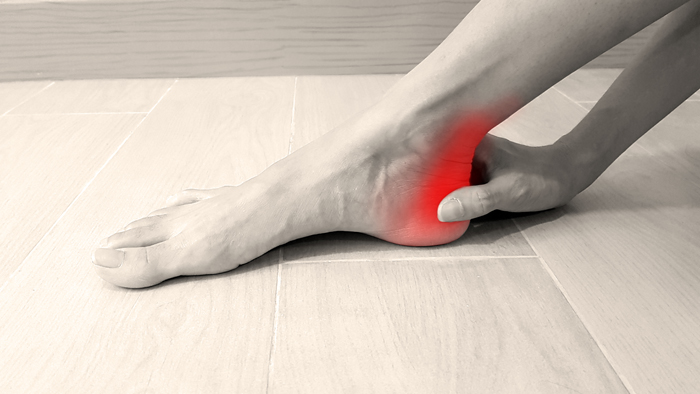Best Achilles Tendon Repair Treatment & Diagnostics in Sadashiv Peth, Pune
Our calf muscles are connected to our heels by a thin band of fibrous tissue called the Achilles Tendon. It is the strongest tendon in the body that supports us while walking, running, and jumping.
Despite being the strongest tendon in the body, it is prone to injuries because of the high tension applied to it all the time. The most effective treatment for an injury on this tendon is Achilles tendon repair surgery.
What is Achilles Tendon Repair Surgery?
Damaged Achilles tendon is repaired by Achilles tendon repair surgery. In severe cases, the tendon can tear or rupture, leading to extreme pain and discomfort in the heels.
Injuries or extreme physical force can rupture or damage your Achilles tendon. Even if you are not living an active lifestyle, there are many conditions like tendinitis that can lead to the degeneration of tendons.

Why do you need Achilles Tendon Repair Surgery?
In every medical condition, surgery is the last possible treatment. Your doctor will suggest starting with nonsurgical treatment like rest, medication, physical therapy, etc. Even in serious injuries, you will be asked to be put on a cast for a couple of months.
After several months, if your condition is still the same, then your doctor will recommend an Achilles tendon repair surgery.
Some of the injuries that might require surgery if they turned chronic are:
- Torn tendon
- Ruptured Tendon
- Tendinitis
What are the Risk Factors that Increase the Chances of Injury?
Your Achilles tendon can be ruptured in any way but certain factors make your tendons weak, making them susceptible to injury.
Some of the conditions that can affect your tendons are:
- Rheumatoid arthritis
- Thyroid disease
- Kidney failure
- Diabetes
- Gout
- Systemic lupus erythematosus
Some other factors can also weaken your tendons:
- Old age
- Overuse
- Poor conditioning
- Jogging on hard surfaces
- Poor quality of shoes
- Previous tendon injuries
How to Prepare for Achilles Tendon Repair Surgery?
Your doctor will ask you to get some imaging tests done before going for surgery. This step will give more clarity to the condition. Some other tests are performed to ensure that you are not allergic to any medication that will be used in the surgery.
Your doctor needs to know about all the medications, supplements, food items that you consume daily.
Your doctor will prohibit some of the medications and food items. Also, you should stop smoking and alcohol.
You should not consume anything for about 8-10 hours before your surgery.
How is Achilles Tendon Surgery Performed?
The patient is injected with anesthesia. The surgery is performed when the patient is in deep sleep. In this way, doctors can avoid any sudden movement or pain.
Your ortho surgeon will make an incision at the back of your leg. If it is a minor surgery, a small incision is enough to perform the surgery. If your doctor is using an arthroscope, a couple of small incisions will be made.
Now that your tendons are visible, your doctor will remove all the damaged parts and repair any tears.
Once the tendons are repaired, the incision is stitched and bandaged.
What are the Risks Involved?
There are some risks involved in Achilles tendon repair surgery:
- Bleeding
- Infection
- Reaction to anesthesia
- Nerve damage
- Healing problems
- Weakness in calf strength
These risks depend on age, condition, and surgical procedure. You should have your surgery done by an experienced ortho surgeon.
Request an appointment at Apollo Spectra Hospitals, pune
Call 1860-500-2244 to book an appointment
Conclusion
Severe Achilles tendon injuries can halt your activities. If you strengthen your treated calf during rehabilitation, you can get back to your extreme activities quickly.
References
https://www.medicinenet.com/achilles_tendon_rupture/article.htm#what_is_an_achilles_tendon_rupture
After Achilles surgery, your leg will be stabilized by a cast or walking to avoid any movement. It usually takes 6 to 12 weeks to heal completely after the surgery.
To have a faster recovery, you should follow all the aftercare instructions given by your surgeon. You should rest, ice, and compress your leg for healing fast.
Damaged tendons never heal completely. After surgery, your tendons are more susceptible to injuries and damage.
Symptoms
Our Top Specialities
NOTICE BOARD
CONTACT US
CONTACT US
 Book Appointment
Book Appointment


.svg)
.svg)
.svg)
.svg)








